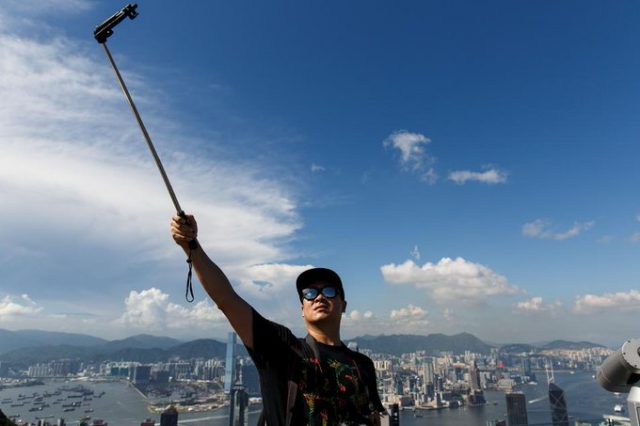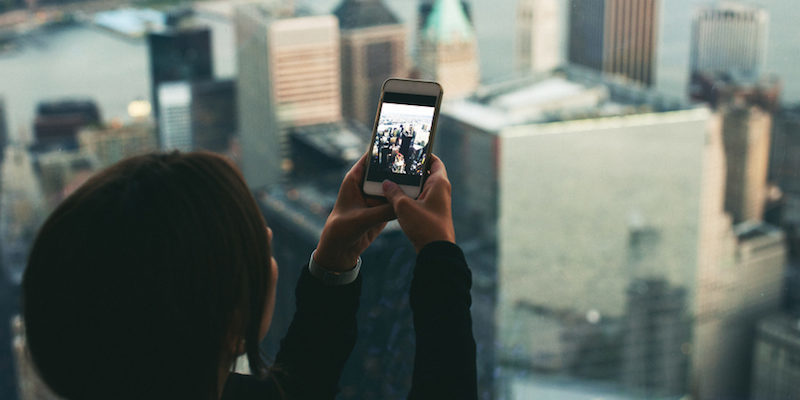Real or virtual travel experience – the choice is yours.

In the summer, many people post vacation photos on their social media profiles. I do this too, but only when I return to my normal schedule. While traveling, I go online: I look at what people have shared, sometimes I comment, I can even write a note occasionally. But I do not post descriptions of my pastime or photos of the sights I saw, even if my friends would be interested to see.
Like many users, I am aware of all the warnings that you should not write in advance about plans to go on a trip or share updates that could encourage potential thieves to invade someone else's private property. But this is not the reason I refrain from publishing. It may seem strange, but the various platforms (and Facebook in particular) are a kind of mixture of diary and public speaking, and when I travel, I realize that the concept of a diary is an illusion. If Facebook is a diary, then one from which is read aloud in a public place full of people, or at least in the presence of a motley group of friends, relatives and colleagues.

On vacation I differentiate between 'social' and 'media'. The social component lies in my interactions with those with whom I travel and meet along the way. It may happen that close enough people will know about my geographic location. But 'friends' c Facebook, shall we say, are a group of people who are not aware of such details of my life. Interacting with them is another kind of 'social'. It disposes of itself and brings inner satisfaction, but is mostly performative in nature. Traveling allows me to become more aware of this.
Each of my travels eventually turns into a story that I share on social networks. When I travel, her script is made up of daily improvisation, which is not yet intended for public viewing. I usually share trip details and photos upon my return home when I am already aware of the development of the story, its highlights, its bottom line and what I want to remember or highlight. The awareness of what is and is not Facebook fades away until the next trip.
I understand that many vacationers use different platforms differently and I am not criticizing them in any way. Our social media experiences are different, as are platforms like Facebook and Snapchat. But what comes to my mind is an article from a distant, network-based 2014 year called 'The Frontiers of Friendship'. It discusses research by anthropologist and psychologist Robin Dunbar. It states: “Without a doubt, social media like Facebook are changing the very nature of human interaction.”
Facebook allows you to track people you would most likely lose sight of, and this is one of the reasons for the popularity of this platform. But it is the very nature of shared experiences that is the foundation of real friendship. You laugh, dance, and stare together at the hot dog-eating tourists as you walk around Coney Island.
This is opposed to the equivalent from social media – you can share, put 'likes', knowing that all your friends have watched the same video with cats on YouTube as you, but there is no synchronicity of the shared impression. It's like watching a comedy alone: you won't laugh so loudly and often, even if you are 100% sure that your friends will find it very funny. We saw the same film, but this experience did not bring us closer, as it could when watching together.
Traveling with company means more emphasized physical cohesion and a heightened sense of synchronic shared new experiences. It allows you to understand what social networks do not give.
Original material, author – Irina Raiku
With the growing popularity Instagram and Snapchat, most social media users have developed a reflex, following which they consider it their duty at least once a day, but to post another vacation photo to their profile, often forgetting about the very purpose of the vacation. In some places it is actually beautiful and interesting, in some places it bothers and repels with its frequency and lack of aesthetic component. But let's omit all the jokes like 'you can fly from any airport in the world and not write about it in Facebook' and discuss the author's idea.
Yes, social networks give us a way to form other people's opinion of us, and all their tools are used for this. But is a fleeting set of 'likes' and comments, somehow warming the pride of online narcissists, is it worth spending time looking for perspectives and a beautiful background for another 'self'? Isn't it more pleasant to meet with friends after a vacation and show them the same photos in person during a pleasant conversation in your favorite restaurant or at home? Alas, the choice is not obvious for everyone, and therefore from year to year we see similar landscapes with a different set of people in the news feed. I do not argue, there are good collections of useful tips and beautiful pictures, but for the most part such posts turn into informational trash. Conclusion: if you want to get the maximum satisfaction from your vacation, spend it with your friends, there will be something to remember and there will be no need to post a daily and for many a meaningless photo report on the network.
Do you think the approach described by the author is adequate? Or is vacation impossible without a selfie stick?
